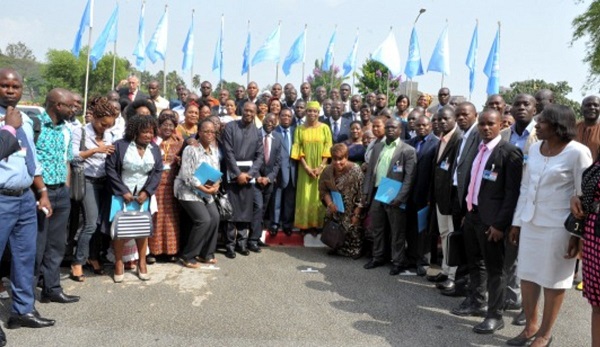This post has already been read 2909 times!
There is a feeling of discontentment about leadership structure in many parts of the World, especially by younger generations. This discontentment is gradually paving the way for many young people seeking political offices. Women too are not left behind in this shift, as their voices are now being heard in political activities across the globe. This year’s US midterm elections showed more women jostling for the congress. As of early Wednesday morning, CNN projected 96 women would win House races, with 31 women newly elected to the House and 65 female incumbents.
This move has already been witnessed in many parts of Europe, from France’s last elections that ushered in Emmanuel Macron, to Ireland, Belgium and even Austria. Greece, Malta and Luxembourg for example, also have in the last five years elected heads under the age of 45. Susi Dennison, senior policy fellow at the European Council on Foreign Relations think tank, attributed this move to growing unhappiness with establishment politicians. “There’s a feeling that this is a time when a new response is needed to today’s problems,” she said. “There is less emphasis being put on age and experience because there’s feeling there’s something wrong, something rotten, in Europe.”
Although, this movement is yet to be seen in many parts of Africa, however; the momentum is gathering. Africa, with a population of about 1.2 billion people, of which almost 200 million are youths (figure is projected to double by 2045), there is so much the continent’s growing young population can achieve in every spheres, which includes politics. But the reality right now within most of Africa’s political landscape is that of older generations of African leaders not relinquishing power to the younger generations.
African countries are currently plagued with older people taking the shot, and giving little or no space for the younger generations to lead. Muhammadu Buhari who is 75 years old is jostling to seek re-election in the forthcoming 2019 elections. He would be 76 years by this time.
For a new Africa to emerge in the 21st century, a new generation of leaders must emerge within our political landscape. Young men and women who are ready to move the destinies of their nation forward. In 2010, Ghanaian economist George Ayittey characterized the “new and angry generation of young Africans, men and women; as the “Cheetah Generation” who could look at Africa’s problems from a fresh perspective, apart from the failed governmental policies of the “Hippo Generation” of leaders which were still in a “1960s-era mentality.”
Source: [Centre for New Dimension Leadership]



